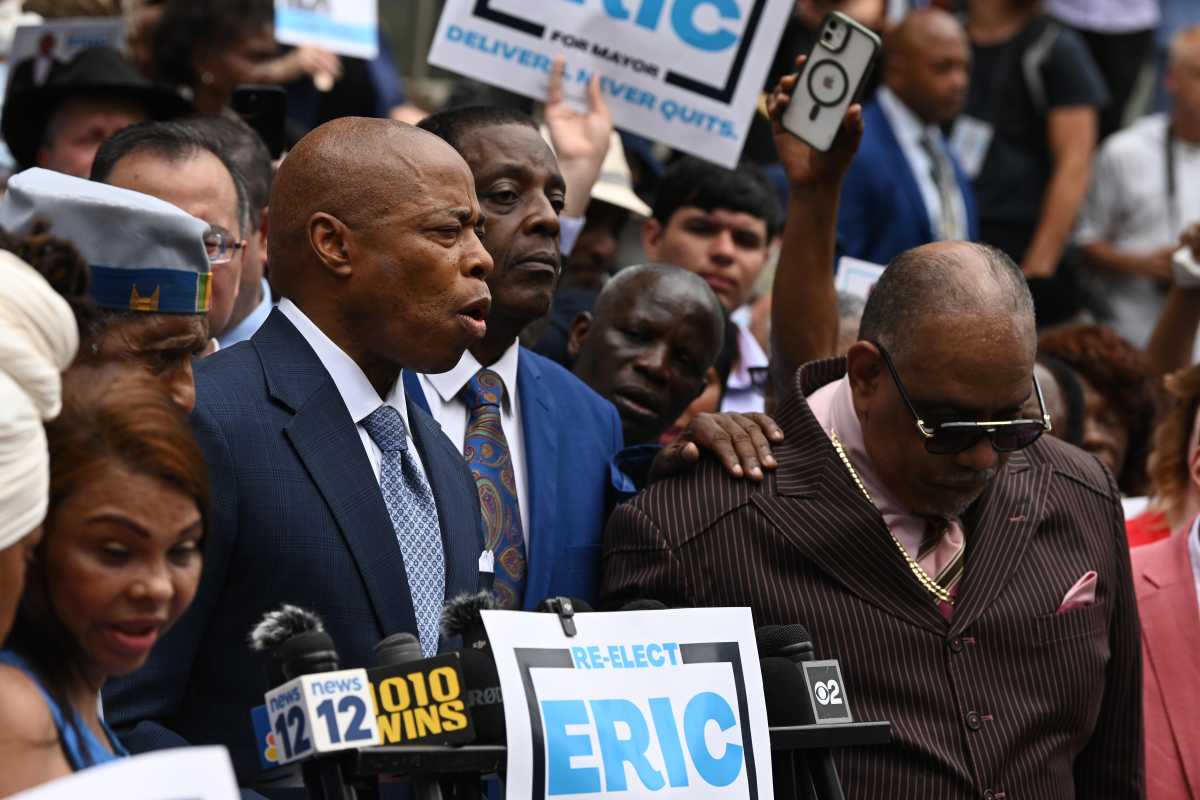The Real Estate Board of New York, Inc. (REBNY) is a broadly based trade association representing owners, developers, brokers, managers and real estate professionals active throughout New York City. We are vehemently opposed to this legislation, which will do nothing to solve the underlying issues behind storefront vacancies, and instead would have a catastrophic impact on our local economy.
There are some who are not aware of how far-reaching this bill is in attempting to stifle the commercial lease market. The bill would require that all commercial tenants — so the CVS, as well as the flower shop, the architect’s office and the international banking institution — be offered a 10-year lease renewal that can only be changed with the tenant’s approval. Rents would be set by binding arbitration if the tenant does not agree to the owner’s offer. If the tenant refuses the arbitration offer and the landlord makes a deal with someone else, that same tenant gets to say yay or nay first.
You have heard and will continue to hear from homeowners, business leaders, affordable housing advocates and others who are strongly opposed to this bill. The bill would severely limit all New York City property owners from making independent decisions about their properties and would adversely impact the finances of the 100,000 New York City households located in co-op buildings. These homeowners rely on revenue generated by their buildings’ retail spaces to help offset maintenance costs and make crucial energy efficiency upgrades to their properties. This bill says they cannot be trusted to make their own business and quality-of-life decisions.
We know that job growth in this city is fueled by new ideas. Yet, this bill will take away the rights of new entrepreneurs in two ways. First, by requiring that existing businesses have the right to remain in place — regardless of business idea or financial viability or neighborhood need — it takes spaces off-line for other users. Second, the bill increases the risk in signing a new tenant. The misperception that our members hold out for the chain tenant will become a self-fulfilling prophecy. If our members know that they will be locked into a lease agreement in perpetuity, they will wait for someone whose idea is proven, and can pay, and will not be a nuisance to their residential tenants. In the interim, more storefronts will remain or become vacant.
Even if the bill was more limited in scope to target the small neighborhood businesses proponents say they want to help, the bill would not address some of the greatest challenges facing these proprietors in the city today.
A closed storefront on Bleecker St., a far too familiar site. The shocking number of empty storefronts on streets like Bleecker, Christopher and others make it crucial that the S.B.J.S.A. finally be passed, advocates say. This store closed after the landlord doubled the rent. Photo by Tequila Minsky
Since a hearing was last held on this bill, the minimum wage has gone up 31 percent and the water and sewer rate has gone up 89 percent. In the last 10 years the actual assessed value on retail stores citywide has increased 77 percent. New York has taxed commercial properties at eight times the rate it applies to homeowners, in contrast to other big cities, where the average is 1.7 times. Assessed value of retail properties has only increased over time and has increased at a higher rate than properties without retail square footage.
And that’s why there is NO incentive to property owners to keep these spaces vacant. The assessed value is not adjusted downward every time a store leaves. New York state Senator Brad Hoylman’s 2017 report “Bleaker on Bleecker” even cites this blatant falsehood as “pervasive misinformation.”
In addition, small independent store owners absorb the cost of paid sick leave and of the bureaucracy in getting approvals. For instance, storefront approvals in historic districts take, on average, six months for necessary business changes as mundane as new signage. The Health Department has increased fine revenues 40 percent, and the city’s latest budget projects collecting nearly $900 million in fines and fees this year — a $110 million increase from the previous year.
Rising business costs and regulatory requirements impede occupancy. Older, outdated space impedes occupancy. This bill will not impact either root cause of storefront vacancies.
The New York City Bar Association recently reported that the City Council has no legal authority to pass this bill. If we put that issue aside, though, this measure still would not address some of the greatest challenges facing small businesses in New York City. Our own research shows that restrictive zoning and other regulatory requirements lead to higher retail vacancy rates. Commercial rent control ignores market conditions and would hurt the economy.
We hope any legislation put forward by the City Council will be legal — based upon data and not anecdotes.
There is no silver bullet to solving local, long-serving neighborhood businesses’ woes. Flexibility is the greatest help we can give small businesses. Failure rates have been consistent for decades — the average retail business survives less than 14 years — because there is always a new challenge. This decade, the big disruptor is e-commerce, with a 50 percent increase in the online share of the retail sales market since 2013. The last decade it was big-box. Nearly 20 years ago, it was 9/11, and before that, suburban flight and urban blight.
We remember what real blight is, and what we see today — while disconcerting — is not it.
This bill will kill jobs, kill ingenuity and ensure the homogenization of retail in New York City. This bill was deeply flawed 30 years ago, and it is deeply flawed today. The only survival the bill ensures is of continued vacancies.
The City Council should focus on initiatives that allow businesses to adapt to the pressures of e-commerce and the challenges of tomorrow. We should spend more time discussing the myriad permits one needs to open a business in the city instead of talking about a 30-year-old bad piece of legislation.
The city should pursue a collection of financial and technical assistance programs and seek to ease government regulation, based on standardized data. We need to get the policy right. So let’s start by taking the time to do a citywide vacancy survey.
The above is slightly excerpted testimony of John Banks, president of the Real Estate Board of New York, at the City Council Small Business Committee’s Oct. 22 hearing on Intro 0737-A, the Small Business Jobs Survival Act a.k.a. the S.B.J.S.A.



























